Politics
FM Fidan, Chinese FM discuss 2-state solution, regional developments
Foreign Minister Hakan Fidan and his Chinese counterpart Wang Yi on Tuesday called for reducing tensions between Israel and Iran, while reaffirming support for a two-state solution to resolve the ongoing crisis in Palestine.
In a phone call, the two top diplomats exchanged views on regional developments, focusing on efforts to de-escalate the Israel-Iran conflict and address the worsening humanitarian situation in Gaza, according to Turkish Foreign Ministry sources.
Fidan condemned Israel’s continued attacks in Gaza, describing them as acts of genocide, and voiced concern over deteriorating conditions for Palestinian civilians.
Both ministers emphasized the need to revive the two-state solution as the only viable path toward lasting peace in the region.
The discussion also touched on strengthening bilateral ties. Fidan and Wang expressed a mutual commitment to expanding cooperation in areas such as trade, investment and political dialogue.
In a separate statement, the Chinese Foreign Ministry said Wang criticized the Israeli and U.S. strikes on Iran as violations of international law and sovereignty, warning they set a dangerous precedent that threatens the global nuclear non-proliferation system.
Wang reiterated that the Palestinian question remains central to Middle East peace and emphasized China’s support for dialogue, peace initiatives, and regional stability.
“China encourages all parties to speak with one voice against war and in favor of reducing tensions,” Wang said, adding that Beijing hopes Türkiye will continue playing an active role in promoting peace in the region.
Politics
Greece’s closure of Western Thrace schools ‘assimilation plan’
The head of the Friendship, Equality, Peace (DEB) Party, Çiğdem Asafoğlu, on Monday, has accused Athens of systematically dismantling Turkish minority education in Western Thrace, warning that the closure of three more schools is part of a wider assimilation strategy in violation of international law.
Speaking to Anadolu Agency (AA), Asafoğlu stated that the Greek Education Ministry has pursued a policy for years of reducing class sizes or shutting down schools attended by the Turkish minority. This year, just before the start of the academic term, authorities closed schools in Kardere and Mehrikos in Rhodope, as well as in Hasanlar village in the Evros region.
She stressed that student numbers are deliberately reduced each year under the pretext of “low enrollment,” resulting in a decline from 210 minority primary schools two decades ago to just 83 today. “This is a demographic engineering project targeting cultural and identity assimilation,” she said, adding that such actions are “a crime under international law.”
Under the 1923 Lausanne Treaty, Turkish minority schools in Western Thrace are meant to have autonomous status. However, Asafoğlu said Athens applies the treaty selectively. “When it suits them, they invoke Lausanne against us. When we say ‘We are Turks’ and speak of the Turkish minority, they accuse us of violating Lausanne and being a national threat. But they breach the treaty whenever it benefits them,” she noted.
She argued that even if student numbers fall, minority schools cannot be shut down under Lausanne. Yet, once closed, schools never reopen despite official claims to the contrary. “In Musaköy and Hacı Mustafa villages, the student count later met the threshold, but the schools remained shut,” she said.
Asafoğlu accused Greece of depriving children of the right to mother-tongue education and encouraging them to attend Greek schools instead, offering transportation as an incentive. “That’s not a solution; it’s assimilation,” she said.
The DEB leader also rejected Greece’s claim that closures are temporary. “We know from experience this is permanent. It’s a calculated attempt to erode our cultural and linguistic heritage,” she said.
Beyond education, Asafoğlu warned that discriminatory policies extend to economics, agriculture and personal rights. “Greece is known as the cradle of democracy, yet when it comes to the Turkish minority in Western Thrace, democracy is absent. Laws are passed without consulting the minority’s legitimate representatives,” she said.
She vowed to continue challenging the closures through political and legal channels, including the European Parliament, where DEB holds representation. “We will not allow the Turkish people here to be assimilated or ignored. These rights are rooted in history and guaranteed under international agreements,” she said.
Asafoğlu also criticized the poor physical conditions of minority schools and the state’s refusal to improve facilities. “They want conditions to deteriorate so parents send children to Greek schools. This is part of a broader effort to reduce our numbers and change the region’s demographic makeup,” she concluded.
Some 150,000 Muslim Turks in Western Thrace, economically one of the poorest in Greece, have long complained about deteriorating conditions. Seeing the community as a “hostage” of its ties with Türkiye, the Greek government has committed numerous breaches of its treaty obligations and European Court of Human Rights (ECtHR) rulings over the years, including the closure of schools, the banning of Turkish-language education and refusing to legally allow the community to elect their religious leaders like muftis (Muslim clerics), which is also another treaty right.
Politics
Terror-free Türkiye plan proceeds with caution, focus on PKK’s future
The disarmament of the PKK terrorist group continues as the terror-free Türkiye initiative took a new turn with the establishment of a special parliamentary committee to discuss the process.
The group, titled the National Unity, Fraternity and Democracy Committee, held its second meeting on Friday and the closed session heard ministers of interior and national defense as well as head of intelligence organization. On Tuesday, it will hold its third meeting while media reports say more concrete steps from the PKK may come soon.
Those include the evacuation of Makhmur and Sinjar, two camps where PKK members and sympathizers reside in Iraq, setting up a legal framework for disarmed members of the group and the likely voluntary evacuation of the PKK’s senior figures to African or European countries.
The PKK started laying down weapons last month through a ceremony in northern Iraq’s Sulaymaniyah. Thirty members of the group, including senior leader Bese Hozat, burned their weapons in a cauldron in a well-publicized ceremony. Since then, little has been heard from the group except statements by some PKK leaders apparently expressing dissatisfaction with group’s decision to dissolve itself.
A report by Sabah newspaper published on Saturday says disarmament continues in secrecy, and Turkish officials closely monitor it and record the sites where arms were abandoned. Türkiye expects the process of disarmament to move forward faster than examples abroad, such as the disarmament of the ETA in Spain or the IRA in Ireland.
Soon, authorities expect the evacuation of Makhmur and Sinjar, both occupied by the PKK, sites that have hosted both Kurdish families and armed members of the terrorist group. The Makhmur camp is the oldest for PKK members and was set up in 1998 in the eponymous town. It primarily housed PKK sympathizers who left Türkiye in 1990s, as well as dangerous PKK members. Unconfirmed media reports say the PKK’s jailed leader, Abdullah Öcalan, sent a message to residents of the camp and urged them to prepare for imminent evacuation. The report by Sabah says families hailing from Türkiye who lived in Makhmur under the control of the PKK would be allowed to return home.
Türkiye is considering reintegration measures for PKK members not involved in any crimes and who volunteered to abandon arms, according to the Sabah report, but more than three dozen members of the group of senior cadres and some 300 members in lower ranks will not be allowed to return to Türkiye. These include PKK terrorists known to authorities and involved in masterminding or participating in acts of terrorism. Türkiye will allow them to stay in Iraq or Syria for a while but a permanent stay after the PKK’s full disarmament is out of question, according to the reports. The Sabah report also says they would be “advised” to leave for Europe or some African countries with good ties with Türkiye.
An outstanding issue in the initiative is the state of the YPG, the U.S.-backed Syrian wing of the terrorist group. The YPG insisted it was not a part of the disarmament but also failed to comply with a deal it signed with Damascus for integration into the Syrian army.
It is estimated that the YPG has up to 5,000 armed members. The U.S., which long supported the YPG under the pretext of a joint fight against the terrorist group Daesh, recently shifted its rhetoric and started openly supporting the YPG’s integration. Reports say the YPG may not stall its deal with Damascus more if Washington cuts off support and evacuate its military outpost in several northeastern Syrian towns occupied by the YPG.
In Ankara, Parliament will deal with the legal aspects of the initiative. Likely building upon the new committee’s recommendations, Parliament is expected to draft bills for the integration of disarmed PKK members to the society and their rehabilitation.
New legal regulations are required for PKK members to return to Türkiye, which designates it as a terrorist group. Quoting unnamed Turkish authorities, the Sabah report said Iraq is home to about 2,200 PKK members, while it is estimated around 200 terrorists are in hiding in Türkiye. Currently, some 5,000 people are incarcerated in Turkish prisons on charges related to the PKK and about 100 among them are elderly or suffering from debilitating diseases. A new amendment may particularly lead to the release of this second group as elderly and terminally ill prisoners are occasionally granted clemency.
Speaking before the last meeting of the parliamentary committee on Friday, Parliament Speaker Numan Kurtulmuş, who also chairs the committee, said they needed closed sessions due to the sensitive nature of the matter. Despite widespread support for the initiative as evidenced in recent opinion polls, authorities are worried that there might be attempts to undermine it, especially by far-right parties that oppose the initiative and foreign powers that used the PKK as a proxy group to advance their own goals, as the government has repeatedly pointed out.
“The committee is a historic step. In order to seize this great opportunity and, with the terrorist group now set to dissolve itself, to establish an environment where weapons, strife, and conflict are no longer discussed and where peace, brotherhood, and well-being take their place, our committee has a historic duty. I would like to thank everyone for the attitude shown during the commitee’s first meeting. Each of our colleagues expressed their views openly and in a highly respectful manner. The fact that our first decisions were adopted unanimously with the joint votes of all parties and all deputies participating in the commission is important for the committee’s success. From now on, I believe the spirit of unity displayed here will be important both for the negotiations and for the implementation of the decisions taken,” Kurtulmuş said.
“To make the most of this historic opportunity, we must proceed very carefully and express our views clearly. After all, those present in this room represent, in terms of votes, 98% of Türkiye. We are obliged to conduct this process with the sensitivity to meet the opinions and expectations of the people. There will be sessions in which very open and heated debates take place, but all of these will be the result of our shared intention to strengthen Türkiye’s national unity and solidarity. The consensus that emerges will please large segments of the public,” he said.
Kurtulmuş highlighted that the committee would oversee the legislative and regulatory arrangements that would emerge in connection with the process and would refer them to Parliament’s General Assembly for an ultimate decision and legislation.
Politics
Thousands attend Istanbul night rally to protest Gaza genocide
Istanbul’s Beyazıt Square was home to a major rally on Saturday evening against Israel’s ongoing genocide in Gaza and to protest the starvation Palestinians are exposed to.
Thousands of protesters, brought together by the Support to Palestine platform, which comprised the country’s prominent nongovernmental organizations (NGOs), marched toward Hagia Sophia Grand Mosque from the square, holding small lanterns and flashlights from their cellphones for the “Be A Light of Hope for Gaza” rally.
Participants sought to raise awareness of the humanitarian crisis and express solidarity with the people of Gaza amid escalating violence and severe shortages of food and medical supplies. Organizers called on the international community to take urgent action to end the suffering.
The crowd chanted slogans, “Killer Israel, Get out of Palestine” and “Children of Gaza, Wait For Us.” Among the participants was Ali Erbaş, head of the government’s Presidency of Religious Affairs (DIB), who recited prayers at the end of the rally. Others included Bilal Erdoğan, son of President Recep Tayyip Erdoğan, who also serves as chair of the board of trustees at a prominent NGO, Istanbul Governor Davut Gül, general secretary of the ruling Justice and Development Party (AK Party), Eyyüp Kadir Inan, Türkiye’s most popular drone maker Baykar’s chairperson, Selçuk Bayraktar, and heads of several labor unions.
After speeches, a young Palestinian girl recited a poem dedicated to Palestinians by the late Turkish poet Mehmet Akif Inan.
Israel has faced mounting outrage for its genocide in Gaza, where it has killed more than 61,000 people since October 2023. The military campaign has devastated the enclave and led to deaths by hunger and starvation.
Last November, the International Criminal Court (ICC) issued arrest warrants for Israeli Prime Minister Benjamin Netanyahu and his former Defense Minister Yoav Gallant for war crimes and crimes against humanity in Gaza.
Israel also faces a genocide case at the International Court of Justice (ICJ) for its war on the enclave.
Among the demonstrators was Canadian-born educator Jenny Molendyk Divleli, who said the situation has reached an ever more serious stage.
“Everybody’s aware that there’s genocide going on, but the situation now with the forced starvation of the Palestinian people is extra dire every day. You know, tens of people, even maybe hundreds, are dying, so we really need to make sure that we’re making noise and doing what we can,” she told Anadolu Agency (AA).
Raised in a conservative Christian family, Jenny converted to Islam in 2006 after extensive personal research.
Now living in Istanbul since 2012, she creates social media content – often with her five children – that explains topics like Islam and the life of the Prophet Muhammad in both English and Turkish, aimed especially at young audiences.
Divleli also noted what she sees as a global shift in attitudes toward Palestine.
“I do think that the general public opinion has changed globally. I think that more and more organizations are starting to speak up. We’re seeing news agencies change and people who have been in the media, who have been anti-Palestine, are now changing their opinions. I don’t think that it can be denied anymore, which makes me hopeful,” she said.
Mohammed Ben Elsheikh, a Tunisian protester who has lived in Istanbul for four years, told AA that the protests aim to amplify the voices of Gazans.
“First of all, I would like to send my greetings to our brothers in Gaza and Hamas. May God help them. We will soon be free,” he said.
He condemned the international community’s inaction.
“It is a shame that children are dying. All of Gaza is dying. A lot of things are happening – murder, starvation, imprisonment. The world is not moving. The presidents are not moving. We, as Muslim people, are moving. But this is not enough.”
Politics
Celebrity lawyer detained in Istanbul for FETÖ links, espionage
Rezan Epözdemir, a lawyer known for high-profile cases, was detained on Sunday in Istanbul as part of two investigations.
The Chief Prosecutor’s Office in the city said he is accused of bribery, aiding the Gülenist Terror Group (FETÖ), and political and military espionage.
Police squads searched Epözdemir’s home and his office in Istanbul’s Levent district before his detention. Media outlets reported that Epözdemir was scheduled to fly to London at the time of his detention.
Epözdemir is a well-known lawyer who last represented the family of Ahmet Mattia Minguzzi, a boy murdered by two other boys in broad daylight in an Istanbul marketplace last January.
Last year, a photo of Epözdemir having dinner with Michael Rubin, a former Pentagon official and Dan Arbell, a former high-level official at Israeli Foreign Ministry made the headlines in Turkish media, sparking an uproar. Social media users questioned Epözdemir’s ties especially to Rubin who is known for staunchly anti-Turkish articles he penned on several websites.
FETÖ, known for its widespread infiltration into public institutions, from judiciary to military, carried out deadly coup attempt on July 15, 2016. Since then, its extensive network has been under heightened scrutiny. The group still has backers in army ranks and civil institutions but they managed to disguise their loyalty, as operations and investigations since the coup attempt have indicated.
Tens of thousands of people linked to FETÖ were detained, arrested or dismissed from public sector jobs following the attempt under a state of emergency. Hundreds of investigations launched after the attempt sped up the collapse of the group’s far-reaching network in the country.
Politics
Türkiye urges Muslim unity against Israel’s Gaza takeover plan
Muslim nations must work in total unison and mobilize the international community to stop Israel’s plan to take over Gaza City, Türkiye’s Foreign Minister Hakan Fidan said Saturday.
Speaking at a joint press conference in El Alamein with his Egyptian counterpart after meeting Egypt’s President Abdel Fattah al-Sisi, Fidan also said the Organization of Islamic Cooperation had been called to an emergency meeting.
Fidan also condemned Israel’s intentions, saying: “We completely reject (Israel’s) intention to fully occupy Gaza; this plan is a new phase of Israel’s expansionist and genocidal policy.”
He added: “As Türkiye and Egypt, we will continue to stand against such scenarios.”
Highlighting humanitarian efforts, Fidan also noted: “We have sent approximately 102,000 tons of humanitarian aid for our brothers in Gaza to date. We thank Egypt for its close cooperation in delivering the aid.”
Abdelatty similarly reiterated Egypt’s commitment “to unite efforts and employ all available means to confront the Israeli occupation plan and its repercussions.”
He emphasized the “shared condemnation of Israel’s decision to occupy Gaza.”
Abdelatty said Egypt was in consensus with Türkiye on ways to tackle the ongoing crises affecting the region.
He described the current phase of Egypt-Türkiye relations as a “significant moment of strategic alignment.”
Politics
Türkiye becoming sought-after mediator at global peace tables: Erdoğan
President Recep Tayyip Erdoğan on Friday said Türkiye has emerged as a trusted and sought-after actor in international peace efforts, advancing with confidence on both diplomatic and economic fronts while maintaining a principled foreign policy that protects the oppressed and avoids reckless adventurism.
Speaking at the Foreign Economic Relations Board’s (DEIK) 38th Ordinary Financial General Assembly and Masters of Respect Award Ceremony in Istanbul, Erdoğan praised Türkiye’s growing diplomatic weight, citing mediation efforts in the Russia-Ukraine war, its principled stance during the Gaza crisis, and its role in Libya, Karabakh, the Gulf, and beyond.
“Türkiye is becoming a sought-after actor at peace tables,” Erdoğan said. “Today, Türkiye trusts and believes in itself and is advancing toward its goals with confidence and firm steps. We neither remain silent in the face of oppression nor chase adventure. Every step is calculated and driven by conscience, justice, and the dignity of human life.”
Erdoğan stressed that Ankara’s approach is rooted in protecting the interests of all 86 million citizens while standing with oppressed peoples worldwide. He said Türkiye has consistently pursued “balanced, principled, and resolute” policies shaped from an Ankara-centered perspective — not by seeking approval from foreign powers.
He recalled Türkiye’s mediation between Russia and Ukraine from the first day of the war, its response to Israel’s assaults in Gaza, Lebanon, Yemen, and Iran, and its decision to halt trade with Israel in protest of what he called the “Gaza genocide.” He also pointed to the strengthening of ties with Gulf states and Türkiye’s presence “wherever needed” — from Libya to Karabakh.
“Even our rivals now speak with praise about Türkiye’s balanced and principled stance,” he said.
Economic strength bolstering diplomacy
Erdoğan also highlighted Türkiye’s economic achievements, saying record exports and a historic milestone in national income support its global influence.
In July 2025, Türkiye posted the highest monthly goods export figure in its history at $25 billion, with foreign trade deficits at their lowest in nine months. Annual exports in 2002 stood at $36 billion; today, monthly exports alone approach that level.
Per capita income rose to $15,971 in the first quarter of 2025, while national income surpassed $1 trillion for the first time, reaching $1.37 trillion. “This shows Türkiye has moved into a different league,” Erdoğan said.
He also underlined the transformation in export composition, with medium- and high-tech goods exceeding $101 billion in value, making up 41% of total exports. The defense sector reached $7.15 billion in exports to 180 countries, while the automotive industry ranked fourth in Europe and 12th globally.
Erdoğan credited DEIK for driving Türkiye’s global trade diplomacy, saying it now serves as both a representative of the private sector and a diplomatic voice for Turkish business abroad.
Domestic unity as part of peace vision
Turning to domestic politics, Erdoğan praised the establishment of the Turkish Parliament’s “National Solidarity, Brotherhood and Democracy Commission,” describing it as a breakthrough in Türkiye’s fight against terrorism and a symbol of political unity.
“This is a historic process that can change who wins and loses,” he said, noting that the committee’s first meeting carried a constructive atmosphere, which he hopes will grow stronger.
He said Türkiye’s half-century struggle with terrorism has cost the economy an estimated $2 trillion and claimed countless young lives, destroying families and hindering democracy. “Now, we want the country and the nation to stop losing,” he said.
“Our envelope is unity, our message is brotherhood,” Erdoğan declared. “This letter, signed by all 86 million citizens, will reach its address sooner or later. In the end, we will present not only a strong economy but also a strong democracy and brotherhood.”
Erdoğan concluded by affirming that Türkiye will continue to expand its diplomatic role, strengthen economic power, and protect its national interests while advancing peace at home and abroad.
-
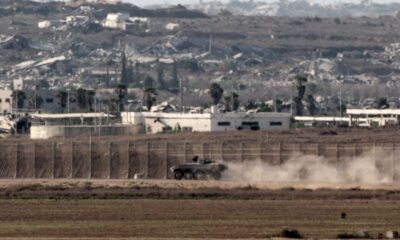
 Politics3 days ago
Politics3 days agoTürkiye urges int’l pressure to stop Israel’s Gaza plan
-
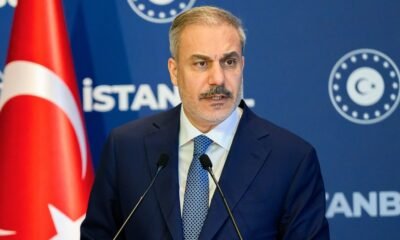
 Politics2 days ago
Politics2 days agoTurkish FM Fidan to visit Egypt to discuss Israel’s Gaza plan
-
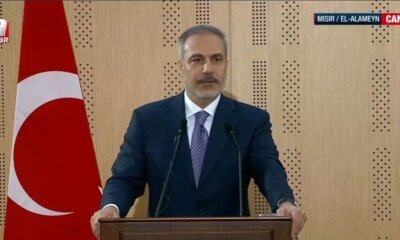
 Daily Agenda2 days ago
Daily Agenda2 days agoForeign Minister Fidan: Israel persistently sabotes cease -fire initiatives
-
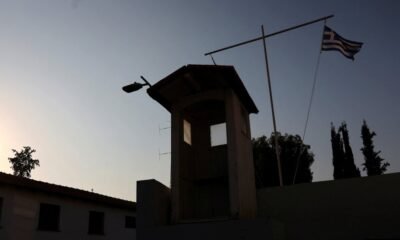
 Politics3 days ago
Politics3 days agoGreek Cypriot biker protest halts Lefkoşa border crossings
-
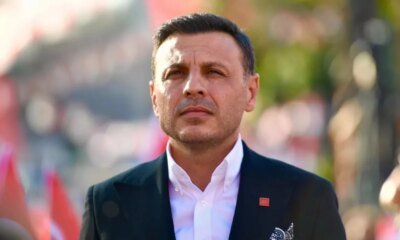
 Daily Agenda2 days ago
Daily Agenda2 days agoLawyer Mehmet Yıldırım and CHP Provincial Chairman Özgür Çelik Came Out
-
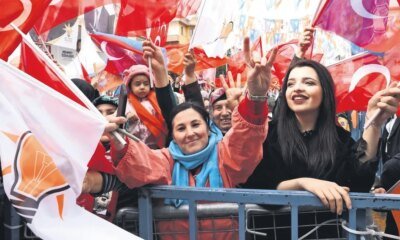
 Daily Agenda2 days ago
Daily Agenda2 days ago2 in Istanbul, 4 points in front of the CHP in front of Türkiye
-
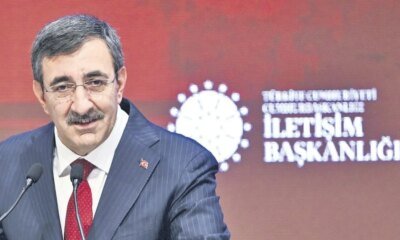
 Daily Agenda2 days ago
Daily Agenda2 days agoVice President Yılmaz: To create a chaos environment for their purpose
-
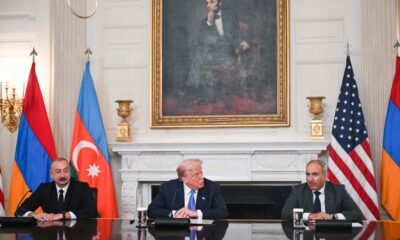
 Politics3 days ago
Politics3 days agoArmenia, Azerbaijan agree to groundbreaking peace agreement




